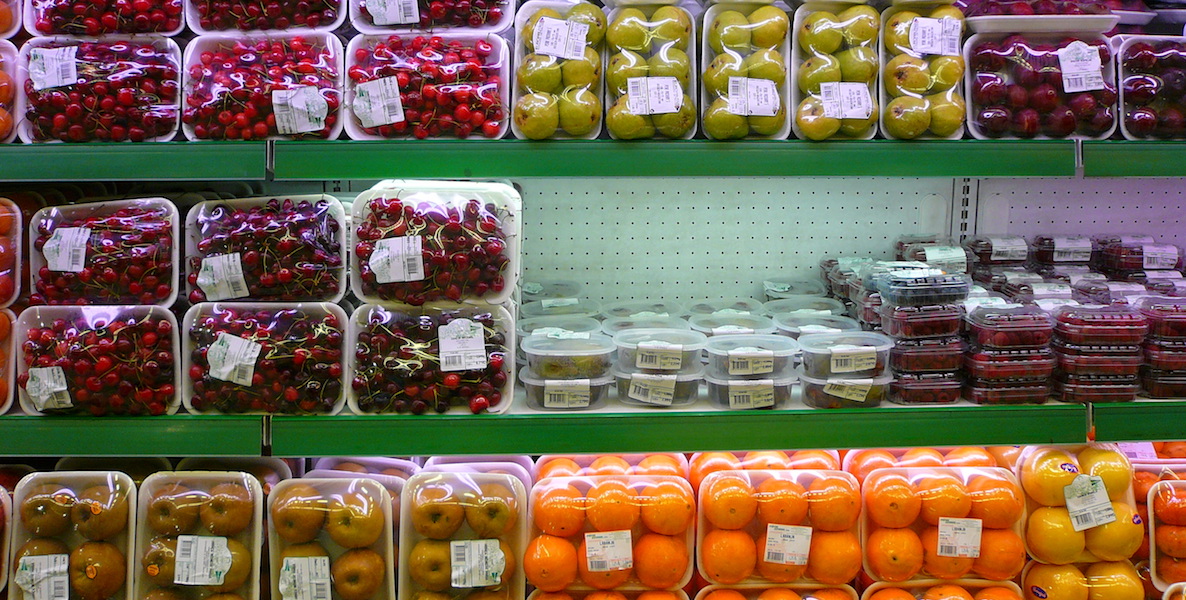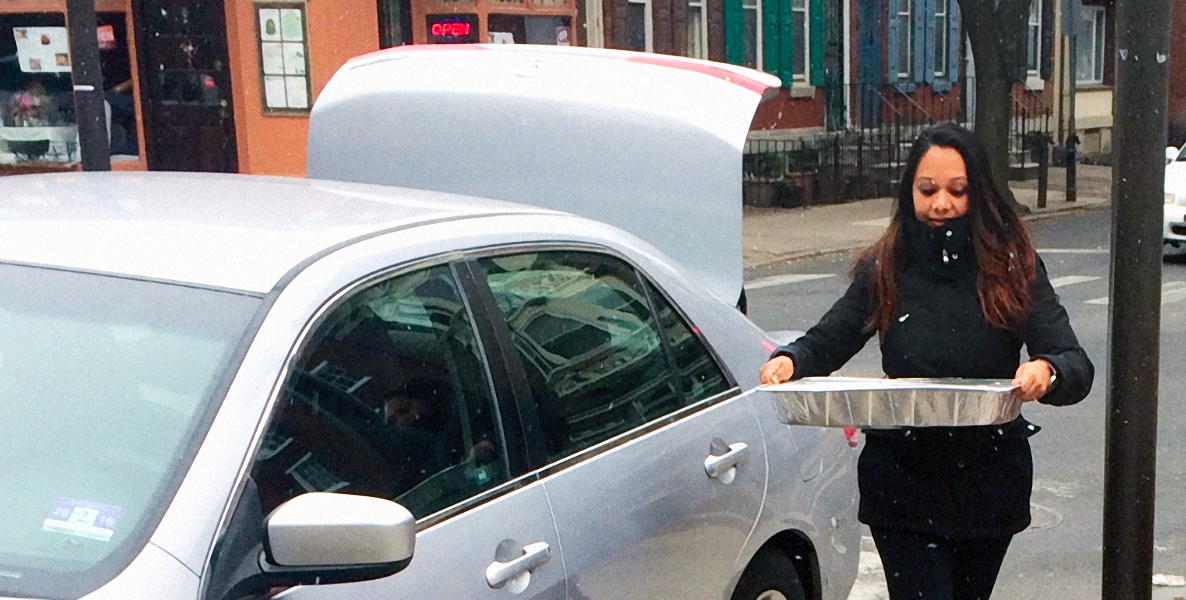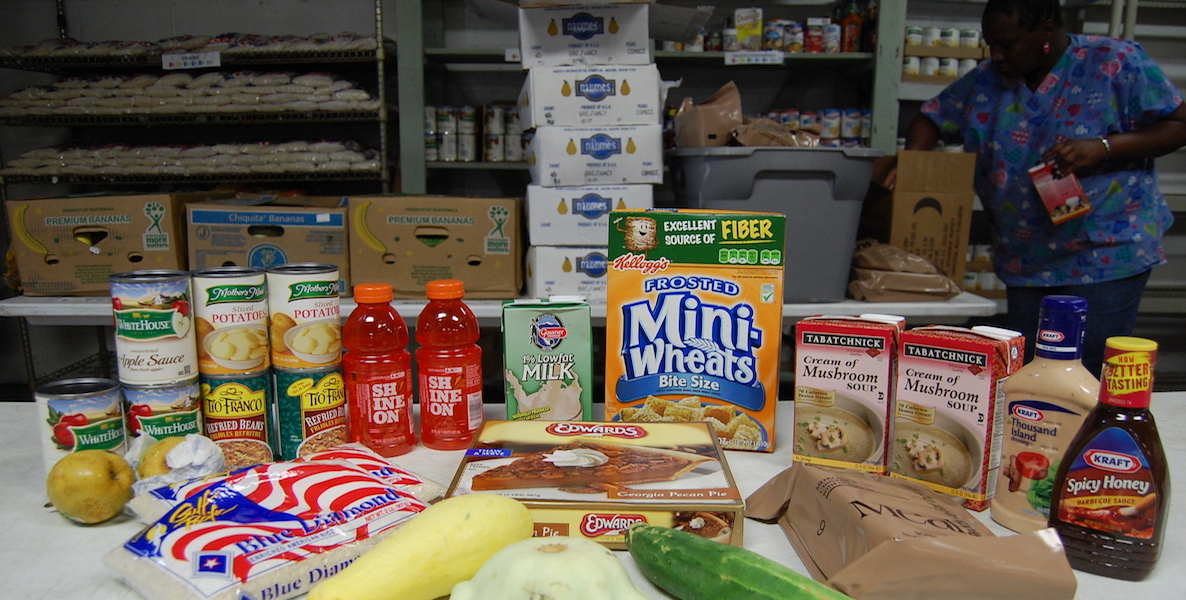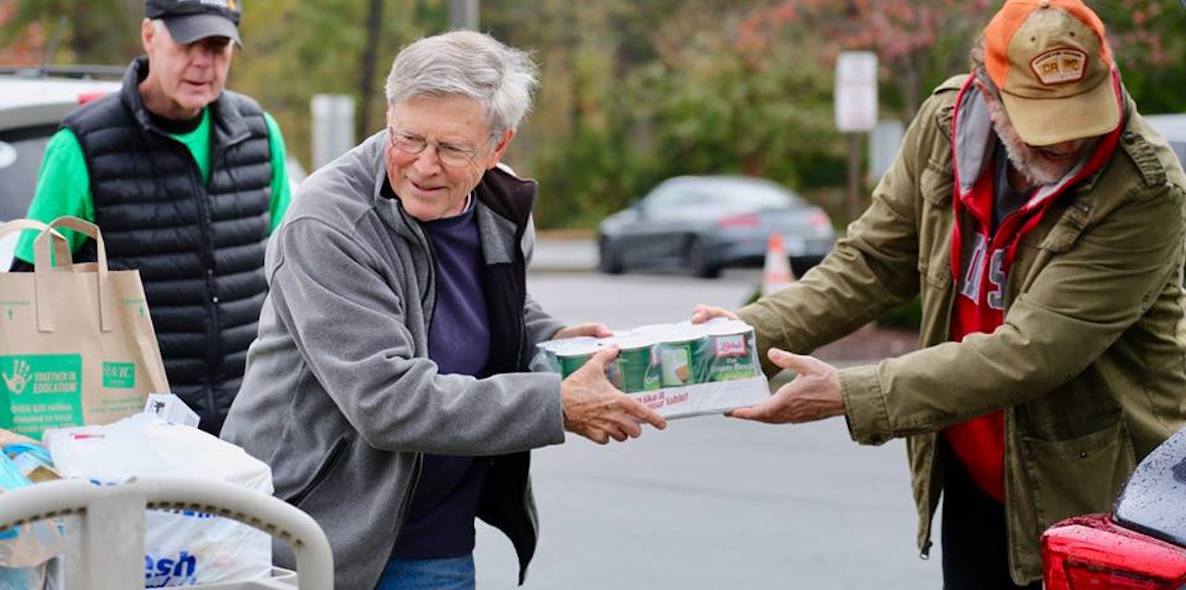In the winter of 2009, Christine Cotton, Debbie Horwitz, and Susan Romaine—three Chapel Hill, North Carolina, moms—were sitting in the stands at their middle school kids’ sports award ceremony when their conversation turned to something that seemed incredibly unlikely: The prevalence of hunger among their children’s classmates.

Prefer the audio version of this story? Listen to this article on CitizenCast below:
Audio Player
“We were all surprised that our children knew so many kids who were hungry,” Cotton says, “and we knew we wanted to do something about it.”
Soon after, a local Chapel Hill food pantry put out a request for cans of tuna. So Cotton and her friends asked a few neighbors to leave a can on their porch for the women to pick up and bring to the pantry. They expected to get a few donations. Instead, they wound up with 50 cans.
Start a PORCH chapterDo Something
“It was incredible,” Cotton recalls. “Thinking that all we had to do was ask friends and neighbors to donate a can—or two or three—and they were so happy to do so. And it was so immediate: We asked, people donated, we collected and delivered to pantries—and families received food.”
Fast-forward nine-plus years, and the women’s efforts have become PORCH (People Offering Relief for Chapel Hill-Carrboro), with 18 chapters that have delivered more than $3 million worth of food to agencies in North Carolina and Ohio. As their organization has grown—and expanded to support not just canned food drives, but fresh food delivery, healthy school snacks, and other programs—their efforts have remained rooted in their neighborhood-centered approach.
“…all we had to do was ask friends and neighbors to donate a can—or two or three—and they were so happy to do so,” says Cotton. “And it was so immediate: We asked, people donated, we collected and delivered to pantries—and families received food.”
Both the idea and the execution for PORCH are incredibly simple: All it takes is one volunteer neighborhood coordinator going door-to-door on their block, or around their neighborhood or apartment building, to explain what PORCH is; ask who might be interested in participating; generate a list of email addresses; and set a date for pickup. Then, once a month, the volunteer sends an email reminder to neighbors, collects the food from participants’ porches (or front steps, mailboxes, or apartment building lobbies), and delivers it to a nearby pantry. PORCH provides all chapter coordinators with an online landing page, email templates, yard signs, car magnets, postcards and as much support as they need.
See what shapes our food systemVideo
The group has hit upon a way to provide food pantries the year-round, reliable support they desperately need—particularly in Philly at this time of year, which Philabundance spokeswoman Samantha Retamar describe as “heat-or-eat season” because people have to choose between heating their homes and feeding their families.
Volunteerism and donations peak around the holidays, Retamar explains, but by January 2nd, financial and volunteer support goes down dramatically—making Philly’s coldest months some of the most dire for the 90,000 people Philabundance serves each week in the Delaware Valley. And the problem is growing; according to a report last fall, more than 320,000 Philadelphians experience hunger annually, a number that has grown in the last couple of years.
“Food insecurity and hunger have no face,” Retamar says. “It’s in every zip code and it could be your neighbor, your co-worker, anybody. And they need year-round support.”
Melissa Driver Beard is the executive director of CORA Food Pantry, one of the recipients of PORCH’s efforts in Pittsboro, North Carolina, which serves nearly 10,000 people each year. “It’s organizations like PORCH that make it possible for us to provide about a half a million meals per year,” she says. “The people who come to us [for food] are generally coming at a time when they’re experiencing some sort of crisis—they’ve lost a job, they’ve lost a spouse, they’ve had a personal hardship,” Driver Beard says. “This allows them a measure of dignity and control that they may have just lost over other areas of their life.”
about food insecurity in Philadelphia Read More
PORCH is an easily-scalable concept, and one that Philabundance’s Retamar says could dovetail with the agency’s existing infrastructure in Philadelphia. The “find food” link on the hunger agency’s website allows Philadelphians to enter their zip code and find the nearest food pantry or kitchen—one that their neighbors might use. PORCH coordinators can call that pantry to do a “needs assessment”—learning what sorts of donation they most need—and to find out delivery times. Then, they can reach out to neighbors with specific requests.
“Donors will be more inclined to donate if they see food going to a specific site and understand who’s really using it and what their needs are,” says Driver Beard. This is amplified by the thing that makes PORCH so powerful: Everyone—from coordinators, to donors, to recipients—is a neighbor, classmate, friend or even family, the exact people whose well-being touches us the most.
“Food insecurity and hunger have no face,” Retamar says. “It’s in every zip code and it could be your neighbor, your co-worker, anybody. And they need year-round support.”
Photo via Porch






